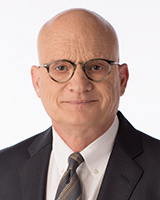Fires & Outages: The new normal has grown old and we're tired of it


SAN FRANCISCO (KGO) -- It is the time of year when the leaves turn and we should be taking comfort. But the fall in California is not what is used to be. Tina Chandler of Sonoma County can tell you all about that.
"I used to love fall," she said. "Used to love the leaves. But we don't have them because we do not have trees anymore. It is not the same."
ABC7 SPECIAL: 'Fire, Power, Wind: What Now?'
In the last three years, California has endured more than 23,500 wildfires, and still counting. They have burned more than 3.5 million acres and cost taxpayers and homeowners more than $600 billion.
"I am going to call this more like a tsunami, a tidal wave of fire," said Cal Fire Captain Rich Crawford, last year.
As for the pain and suffering, we could replay the same sound bites over and again.
"I would never have guessed something like this could happen here."
Something you can't even put into words."
If the term "New Normal" has already become old, consider some of the names that have made it that way. They're forever etched into our lexicon.
Paradise. Tubbs. Last week, we inducted Kincade into the group.
The town of Geyserville evacuated first. And it was a first for Debi Matis.
RELATED: San Jose hopes to create power microgrids as back up to PG&E
"We really didn't have much warning," she said while packing the family dachshund.
"Ever done this before?" we asked.
She answered, "I cried a lot. It is scary. You feel like you are going to lose everything."
She was living the moment when many of us have crossed that line between hearing about the ordeal, and living it.
Joe Molsberry and his brother Dean own a grocery store near Mark West Springs in Sonoma County.
"What is the difference between you and them?" we asked.
"I haven't lost it yet, and they did," said Joe.
When the Kincade Fire burned south into Windsor and Vonecrest Road last weekend, their homes stood directly in the path.
"I would say it is a matter of when, with the wind at our backs," said one firefighter.
"We are not going to give up. We will take a stand," added another.
They set backfires and banged on doors to get everyone out.
"There was no way it was going to be saved, and they saved it," said Dean with disbelief.
In a region of accumulating and complied trauma, he and his family still paid a price.
After losing half a million dollars worth of food in 2017, the Molsberry's evacuated for six days again in 2019. When their parents opened the store 60 years ago, they never imagined their sons dealing with a California like this.
RELATED: PG&E CEO addresses customers who can't restock food spoiled during outage
"They would be shocked," said Dean. "It was shocking the first time but to have it happen again, unreal."
And it's happening in multiple layers.
Four times this year alone, PG&E has intentionally cut power to hundreds of thousands of us, all to keep the electrical grid from sparking more fires. The Molsberry's are just one business among thousands facing a loss.
"If it gets shut off by PG&E, then insurance doesn't take care of you," explained Joe. "If you get burned out, you get taken care of by insurance. But if you lose everything, how do you start over again?"
Three years ago, how many of us kept a mask close at hand?
It's standard issue now. Tina Chandler told about what the smell of smoke does to her.
"It makes me nauseous," she said.
When we asked if it's mental, Chandler answered, "It's mental. Post-traumatic stress. Many of my friends have it. It's the real thing."
If anyone understands PTSD, how about Dr. Diane Malnekoff.
"It was pretty upsetting and horrific to think my house would burn down twice," she said.
RELATED: Gov. Gavin Newsom to PG&E: Get your act together, or we'll do it for you
Malnekoff, too, evacuated from her rebuilt home last weekend, five days after moving back.
Time now for the therapist to appraise her own case of hyper anxiety.
"It's wanting to know," she said. "To have information about what is going on by not specific information, and being specific about that. So I can analyze what I am going through and know what I am going though and experiencing is normal. But it still doesn't stop it from happening."
It's happening from watching this.
Happening from living this.
Even if fire hasn't touched us, we're all part of California's figurative tent city.
And our state challenged, if not changed.
Go here for the latest stories and videos on PG&E Public Safety Power Shutoff
Go here for the latest stories and videos on the Kincade Fire




